
6 Benefits of Visualization for Swimmers
Wondering what visualization can do for your swimming? Here are some evidence-based benefits of visualization for swimmers for more confidence, less choking, and even better technique.
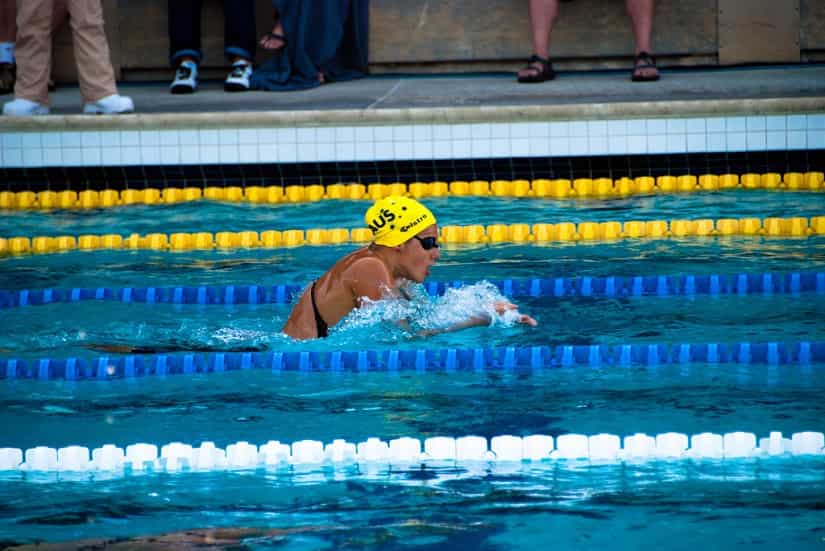
If it’s high performance swimming you want, start with a high performance mindset. Buckle up and let me tell you why.
You want to be a better swimmer, right?
After all, your best times are in need of a serious butt-kicking.
And you are ready to take your swimming to that rarefied air of super awesomeness.
So what do you do?
Train more meters? Spend more time working on your technique? Show up to every last morning practice?
Yes, yes, and yes.
Those things are important. And so are the other obvious ones: proper sleep, eating like a champion, and having the proper swim gear.
But if it’s improvement you want (really, really want), than it starts with your mindset.
Faster and more handsomer swimming begins with the way you mentally approach the pool. How you tackle the daily challenges. How you confront anxiety and stress. How resilient you choose to be in the face of injury and defeat.
While genetics, training and lifestyle are critical to your performance, there is perhaps nothing more important then what kind of mindset you have when you walk out onto the pool deck.
Here are just some of the organic and fair trade things that happens when we adjust our mental approach to our swimming:
Mental training finally made simple. Get mentally tougher, choke-proof your races, seriously escalate self-confidence, and much more.
Used by some of the top swimmers and coaches on the planet, Conquer the Pool is the swimmer’s ultimate weapon for a better mindset and faster swimming.
“Me…enjoy…swim practice? Ha!”
Blasphemy, right?
Here’s a chlorinated fun fact for your butt: when you focus on what you are working on, we enjoy it more.
It doesn’t even matter what the task is—it can be something as mundane as sweeping the floor, swimming a long 5k straight, or banging out a series of stomach-churning 100s for time off the blocks.
Want to know why I can say this with confidence? For two reasons.
(1) When you pick something to really focus on at practice (a particular technique improvement, for instance), we are engaged. And when we are locked in, we get lost in the moment and are more likely to hit that sense of flow and mastery.
And (2), researchers followed about 5,000 people via an app on their smartphone and had them record their activity and mood. By far the biggest predictor of enjoyment—no matter how Instagramy the moment was or not, was whether they were focused on the task at hand.
The net result of enjoying your workouts more is that you are going to work harder and show up more often. (Spoiler alert: You will swim faster.)
Know that feeling when you work your tail off for a few months, step up on the blocks and bang out what you think is a fast swim, only to look at the scoreboard in disbelief when you swim slower than you expected?
Yeah, that moment, where you float at the end of the lane, mentally feeling like a bag of smashed hang-nails.
These moments are brought to you by a variety of things, included choking, over-thinking, and misplaced expectations. All of these things can be conquered via a tighter mindset.
We tend to think that stress is unavoidable and unmanageable. Or that over-thinking and rampant perfectionitis (trademark pending) is something we are cursed with and “just the way it is.”
It’s not, and it doesn’t have to be.
Want to hear a dirty little secret about stress? The reason we experience so much of it in the water is because we are focused on the uncertain.
We worry whether we will beat our best time. Whether our training is going to be enough. How fast the competition swims.
An awesome mindset means that you are focused on the certain: Your effort. Your routine. Your process.
When we concentrate on the things we don’t completely control—how the competition is swimming, how we “feel” that day, the workout on the whiteboard—we get stressed. Anxious. To the point that sometimes we withdraw completely.
Focusing on the our process has a powerful double-whammy effect on our swimming: we improve faster and (wait, there’s more!) we experience less of that ravaging anxiety and doubt that comes from endlessly ruminating on the things we can’t or don’t control.
Know that kid on your team who is the natural born-racer? You know, the swimmer that barely shows up to practice, but then gets up on the blocks and blasts a record-breaking swim, in the process dusting everybody?
Infuriating, right?
Especially when you are investing the long hours, day after day, month over month, and not seeing the same kind of results. That swimmer, while perhaps genetically gifted or talented or simply always tapered (you can’t really taper if you have nothing to taper from, after all), has an intuitive grasp of a racing mindset.
They are free from overthinking, seem to “care less,” are relaxed, and as a result, can swim to the complete max of their ability and (lack of) training.
Whereas you, my little overthinking homey, are likely bringing the same mindset from practice to competition, where you are analytical, judgey, and mentally tight.
We tend to fall for the, “But what’s in it for me?” line of thinking when we hear about the importance of team.
But a positive culture does more than just provide better results and atmosphere for the squad—it helps you perform better, too.
Having a positive mindset in training, whether that is encouraging the younger swimmers or your group-mates during a tough set, has a compounding effect on performance.
You get the benefits of positive external self-talk (which works, and is why you see swimmers such as Caeleb Dressel saying stuff like, “Let’s go, come on!” in the moments behind the blocks) on your own swimming, while also helping to build up a positive team environment, which will benefit you on the days where you are struggling to get through a practice.
Carve out some time each week to spend on improving your mental training.
You could sit down on Saturday afternoon and go over the week, seeing where your mindset was good, and more importantly, where it can improve. Spend ten minutes a day visualizing your technique, or your ideal race, or even yourself experiencing adversity in training or competition…and thriving in the face of it. Make a point to encourage a teammate each day at practice.
Mental training doesn’t mean something is wrong with you. It doesn’t mean your brain is broken and in need of repair.
Mental training, and the tools that come with it, are a user manual for high performance. Not a band-aid or a repair kit. It’s learning what works, and scaling it up so that you can swim faster, with less anxiety, more often.
That is, indeed, what I am talking about.
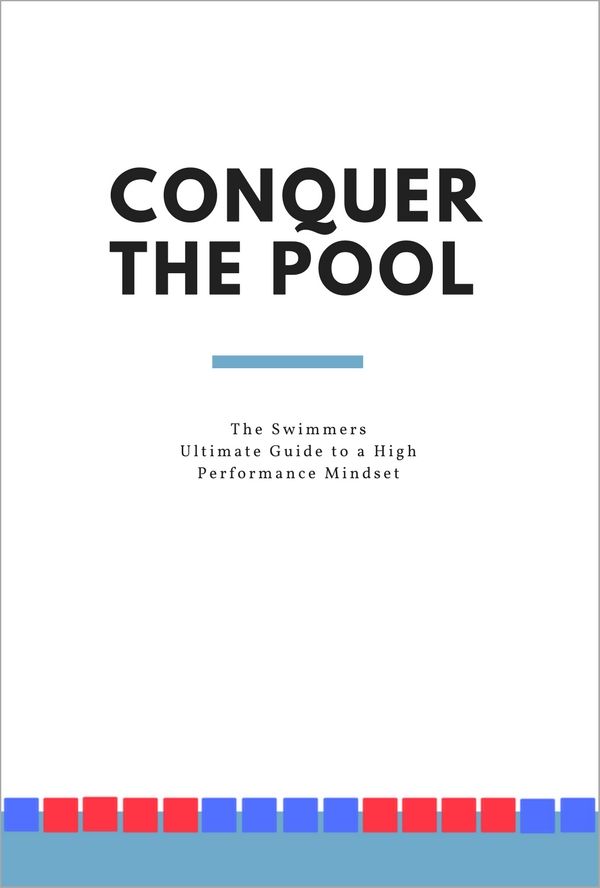
Conquer the Pool: The Swimmer’s Ultimate Guide to a High Performance Mindset might just be for you.

Olivier Poirier-Leroy Olivier Poirier-Leroy is the founder of YourSwimLog.com. He is an author, former national level swimmer, two-time Olympic Trials qualifier, and swim coach.
✅ Free shipping on Orders over $49
✅ Price Match Guarantee
✅ Best selection of gear for training and competition
✅ Fast and Easy Returns

“This is the best book I have ever seen concerning mental training.” — Ray Benecki, Head Coach, The FISH Swim Team


Wondering what visualization can do for your swimming? Here are some evidence-based benefits of visualization for swimmers for more confidence, less choking, and even better technique.

Ready to uncork some best times at your next swim meet? Here’s what you need to know to prepare for a swim meet.

The right mental skills can help you unlock faster swimming on race day. Here is a look at the right skills to use for competition.
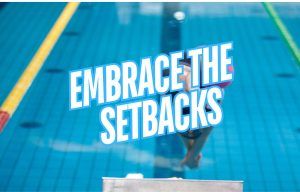
Frustrated with setbacks in the pool? Here are some tips for improving your ability to embrace setbacks and swim faster.
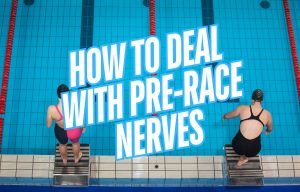
Struggling to swim fast under pressure? Here are some tips for how to manage pre-race nerves on race day.
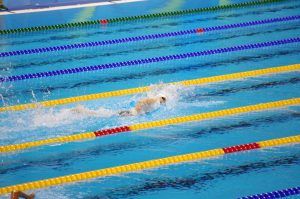
Swimmers often find themselves stuck with doubt when it comes to doing tough things in the water. Here’s a simple question to ask when you find doubt and uncertainty stopping you from excellence.
SITE
SHOP
GUIDES

LANE 6 PUBLISHING LLC © 2012-2025
Join 33,000+ swimmers and swim coaches learning what it takes to swim faster.
Technique tips, training research, mental training skills, and lessons and advice from the best swimmers and coaches on the planet.
No Spam, Ever. Unsubscribe anytime.
